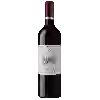
Château de la BrunetteCuvée Traditionnelle Côtes de Bourg
This wine is a blend of 2 varietals which are the Cabernet-Sauvignon and the Merlot.
This wine generally goes well with poultry, beef or veal.
Food and wine pairings with Cuvée Traditionnelle Côtes de Bourg
Pairings that work perfectly with Cuvée Traditionnelle Côtes de Bourg
Original food and wine pairings with Cuvée Traditionnelle Côtes de Bourg
The Cuvée Traditionnelle Côtes de Bourg of Château de la Brunette matches generally quite well with dishes of beef, veal or game (deer, venison) such as recipes of tournedos with foie gras, veal roast, country style or duck with vanilla (reunion island).
Details and technical informations about Château de la Brunette's Cuvée Traditionnelle Côtes de Bourg.
Discover the grape variety: Cabernet-Sauvignon
Cabernet-Sauvignon noir is a grape variety that originated in France (Bordeaux). It produces a variety of grape specially used for wine making. It is rare to find this grape to eat on our tables. This variety of grape is characterized by small bunches, and small grapes. Cabernet-Sauvignon noir can be found in many vineyards: South-West, Loire Valley, Languedoc & Roussillon, Cognac, Bordeaux, Armagnac, Rhone Valley, Provence & Corsica, Savoie & Bugey, Beaujolais.
Informations about the Château de la Brunette
The Château de la Brunette is one of of the world's greatest estates. It offers 4 wines for sale in the of Côtes de Bourg to come and discover on site or to buy online.
The wine region of Côtes de Bourg
The wine region of Côtes de Bourg is located in the region of Côtes de Bordeaux of Bordeaux of France. Wineries and vineyards like the Domaine Roc de Cambes or the Château Tayac produce mainly wines red and white. The most planted grape varieties in the region of Côtes de Bourg are Merlot, Cabernet-Sauvignon and Cabernet franc, they are then used in wines in blends or as a single variety. On the nose of Côtes de Bourg often reveals types of flavors of oak, sweet tobacco or pineapple and sometimes also flavors of cigar, ripe blackberries or bell pepper.
The wine region of Bordeaux
Bordeaux, in southwestern France, is one of the most famous, prestigious and prolific wine regions in the world. The majority of Bordeaux wines (nearly 90% of the production Volume) are the Dry, medium and Full-bodied red Bordeaux blends for which it is famous. The finest (and most expensive) are the wines of the great châteaux of Haut-Médoc and the right bank appellations of Saint-Émilion and Pomerol. The former focuses (at the highest level) on Cabernet Sauvignon, the latter on Merlot.
The word of the wine: Yellow wine
White wines from the Jura region aged in oak barrels without topping up for at least 6 years. A veil of yeast forms on the surface of the wine, which undergoes slow oxidation, giving it a particular taste reminiscent of nuts.








